Can immersing yourself in cold be beneficial to your health?
Cold water therapy, or cold immersion, is what it sounds like: immersing yourself in cold water so that your body temperature drops.
Examples of cold immersion include:
- Cold showers or baths
- Ice baths (immersion in water between 50 and 60 °F)
- Cold pools or lakes (for swimming)
- Taking a walk outdoors in the cold
Let’s look at the health benefits of cold therapy or exposing your body to the cold.
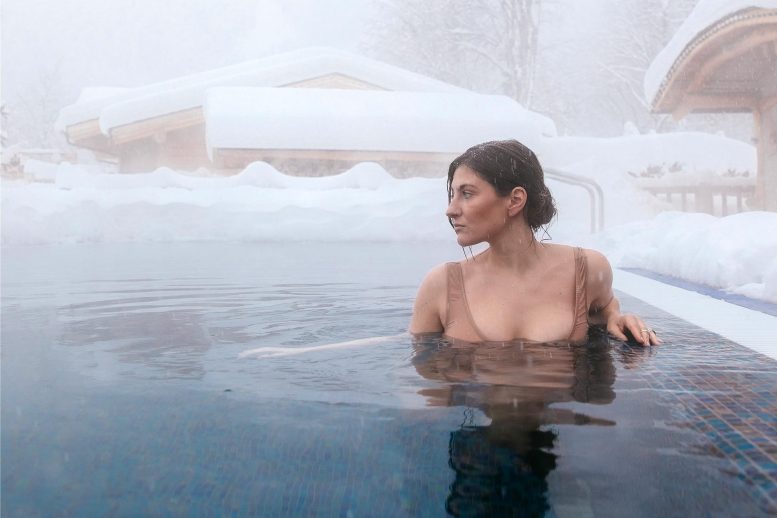
Exposure to cold may help activate your immune system.
Exposure to Cold Activates Your Immune System
Your immune system prevents you from catching cold viruses and other infections. Many people try to boost their immune systems with vitamins and supplements, but they don’t realize they could get better results by taking a walk in the cold or taking a cold bath. That’s because white blood cells, which fight infection, circulate in your body more quickly when you are exposed to cold temperatures. Exposure to cold may also help your immune system produce other infection-fighting warriors, including t-cells and antibodies.
Why might this be? Exposure to cold increases your resting metabolic rate and stimulates the release of catecholamines, compounds released by your nervous system that activate your immune system. Studies show that cold exposure modestly boosts the activity of the immune system. You could get these benefits by taking a dip in cold water or walking outdoors in cold temperatures.
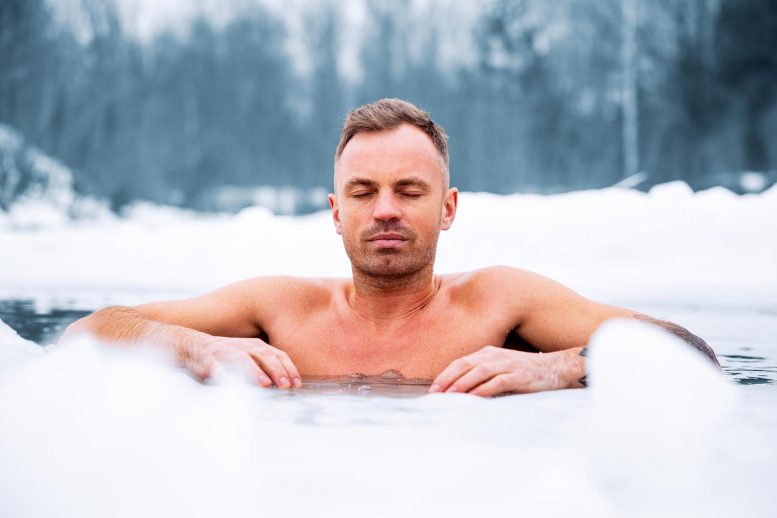
Cold water therapy may help alleviate stress and depression.
Cold Exposure May Help Manage Stress and Depression
Stress is a natural response to any challenge. It’s our body’s way of telling us to pay attention and be prepared to deal with a situation. Stress is meant to spur action, whether that means getting out of the path of a speeding car or doing your best on an important project. Stress serves a purpose but only in small doses.
When you’re stressed for too long or too many things simultaneously, it becomes difficult for your body to manage or recover from the effects. That’s when stress can affect your health and well-being. Some people with unmanaged stress develop depression.
Could immersion in cold water or cold exposure help with depression? One study found that taking a cold shower twice per day reduced symptoms of depression. Although it’s an area that needs more study, anecdotal studies show benefits, too. One way cold immersion may help depression is by activating your sympathetic nervous system so that you feel more energetic.
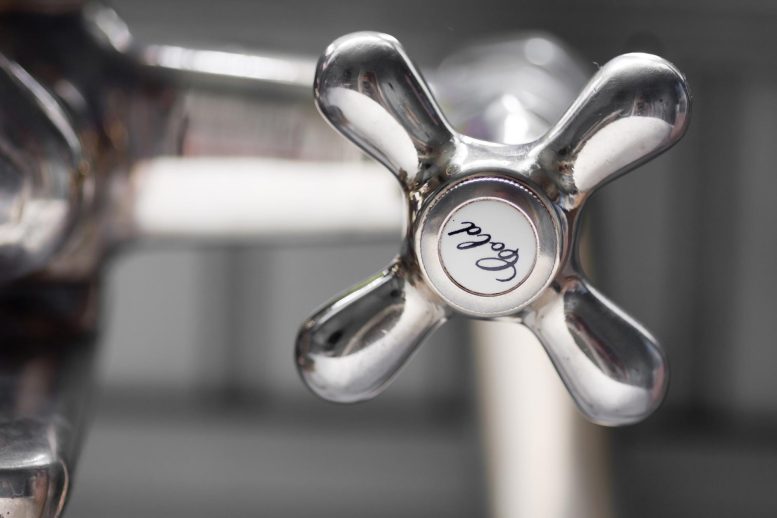
Post-workout soreness can be reduced through exposure to cold temperatures.
Cold Immersion Reduces Post-Workout Soreness
Who enjoys achy muscles after a workout? Unfortunately, it’s a fact of life when you first start working out or after an unusually tough exercises session. After you work your muscles in a way they’re unaccustomed to, it’s common to experience delayed onset muscle soreness. Research shows cold immersion reduces muscle soreness, which may help speed up your recovery time after a training session. The cooler temperature causes blood vessels to constrict (narrow), which reduces the swelling of tissue around the injury. The same thing happens when you apply a cold pack to an inflamed area. The cold reduces tissue swelling and pain. Cold is a natural anti-inflammatory without the side effects of anti-inflammatory medications.
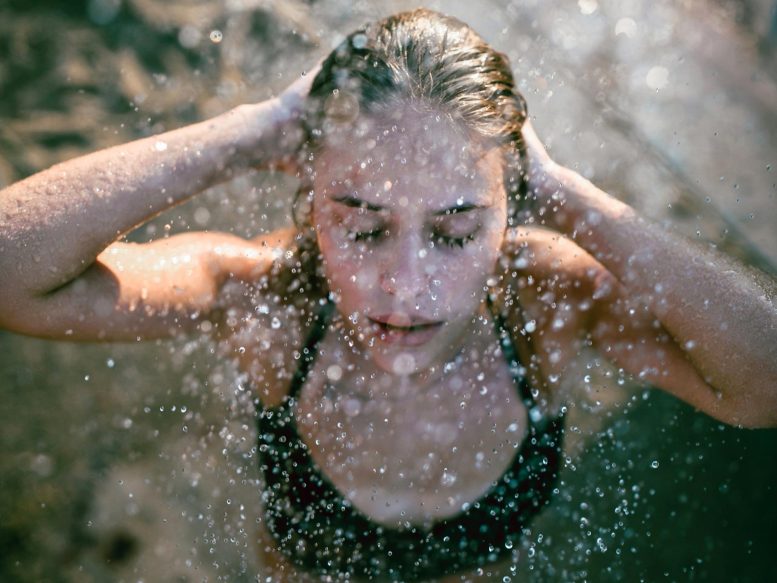
Cold exposure may activates thermogenesis and increase your resting metabolic rate, which could help with weight loss.
Can Cold Therapy Help with Weight Loss?
Cold increases your metabolism and activates thermogenesis, in which brown fat burns calories to produce heat. This is one reason cold showers could be effective for weight loss. In addition, spending time in cold temperatures causes you to be more active because you move around more when you’re trying to warm up.
Some resources suggest that cold water therapy and cold therapy boost calorie burning. But is there any truth to this claim? Studies show that exposure to cold increases resting metabolic rate, which, in theory, could help with weight loss. However, few studies have looked at this issue, and there are other factors to consider. For example, does exposure to cold cause you to eat more and compensate for the calories you burned? It’s an intriguing area that needs more research.
Another way cold exposure could help with weight loss is by improving insulin sensitivity. One study found that 10 days of cold exposure boosted insulin sensitivity in diabetics by 43%. This should help with blood glucose control, too. With cold exposure, cells can better clear glucose from your bloodstream, and that’s a benefit for your metabolic health.
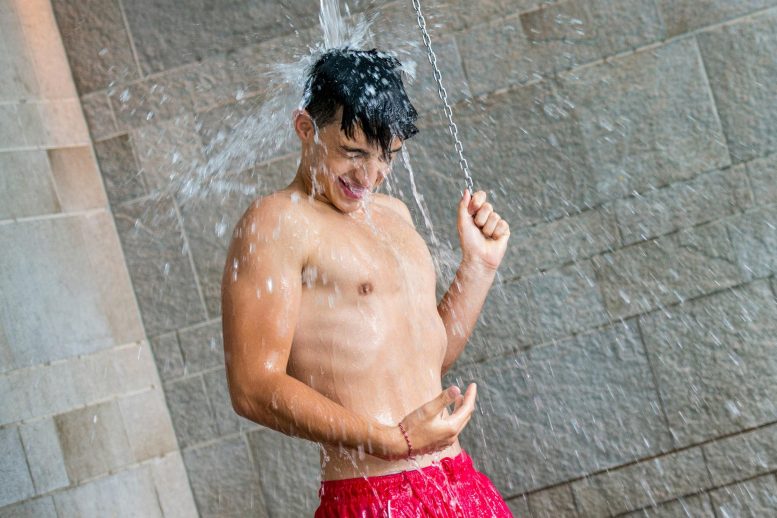
Taking cold showers is a good way to introduce yourself to cold therapy.
How to Get Started with Cold Immersion
The best way to get started with cold therapy is to introduce yourself to cold showers. If you’re not used to cold showers, you’ll need to build up tolerance. Start by exposing your body to cold water for 10 seconds, followed by as much warm water as you want. Gradually increase the amount of time spent in the cold over a period of days or weeks, until you can commit to a full minute under an icy stream. Cold immersion is most effective when you maintain it for at least one minute, so shoot for that as your minimum target duration.
After a cold therapy session, cool down gradually. It’s never a good idea to start with extreme temperatures when first introducing your body to cold showers — this is especially true if you’re trying out an ice bath for the first time! Gradually cool the water down as your tolerance increases. This will help prevent shock and injury.
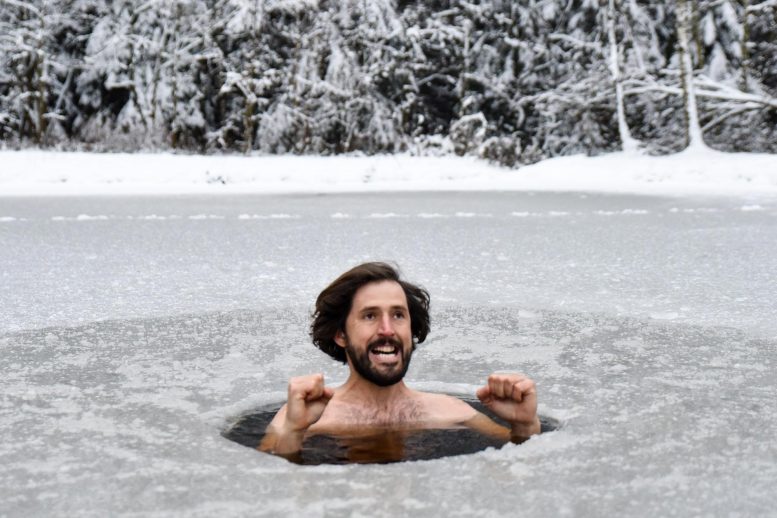
Cold immersion might sound like a strange idea, but it could generate some nice health benefits.
The Bottom Line
Cold water therapy and cold immersion might sound like counterintuitive advice, but it turns out that taking a dip in cold water could have unexpected health benefits. If you’ve never tried cold water therapy or cold immersion, you may want to consider it. The benefits are numerous, and the costs are low. So go ahead, get in the bathtub or shower and see what happens. Check with your healthcare provider first, though.
References:
- Janský L, Pospísilová D, Honzová S, Ulicný B, Srámek P, Zeman V, Kamínková J. Immune system of cold-exposed and cold-adapted humans. Eur J Appl Physiol Occup Physiol. 1996;72(5-6):445-50. doi: 10.1007/BF00242274. PMID: 8925815.
- “Cold Water Therapy: Benefits of Cold Showers, Baths ….” 08 Jul. 2020, healthline.com/health/cold-water-therapy.
- Shevchuk NA. Adapted cold shower as a potential treatment for depression. Med Hypotheses. 2008;70(5):995-1001. doi: 10.1016/j.mehy.2007.04.052. Epub 2007 Nov 13. PMID: 17993252.
- Bleakley C, McDonough S, Gardner E, Baxter GD, Hopkins JT, Davison GW. Cold-water immersion (cryotherapy) for preventing and treating muscle soreness after exercise. Cochrane Database Syst Rev. 2012 Feb 15;2012(2):CD008262. doi: 10.1002/14651858.CD008262.pub2. PMID: 22336838; PMCID: PMC6492480.
- “Cold Therapy Weight Loss Results – The Ice Barrel Review ….” crispell-snyder.com/cold-therapy-weight-loss-results-the-ice-barrel-review-get-colder-feel-better/.
- Hanssen MJ, Hoeks J, Brans B, van der Lans AA, Schaart G, van den Driessche JJ, Jörgensen JA, Boekschoten MV, Hesselink MK, Havekes B, Kersten S, Mottaghy FM, van Marken Lichtenbelt WD, Schrauwen P. Short-term cold acclimation improves insulin sensitivity in patients with type 2 diabetes mellitus. Nat Med. 2015 Aug;21(8):863-5. doi: 10.1038/nm.3891. Epub 2015 Jul 6. PMID: 26147760.



0 Comments